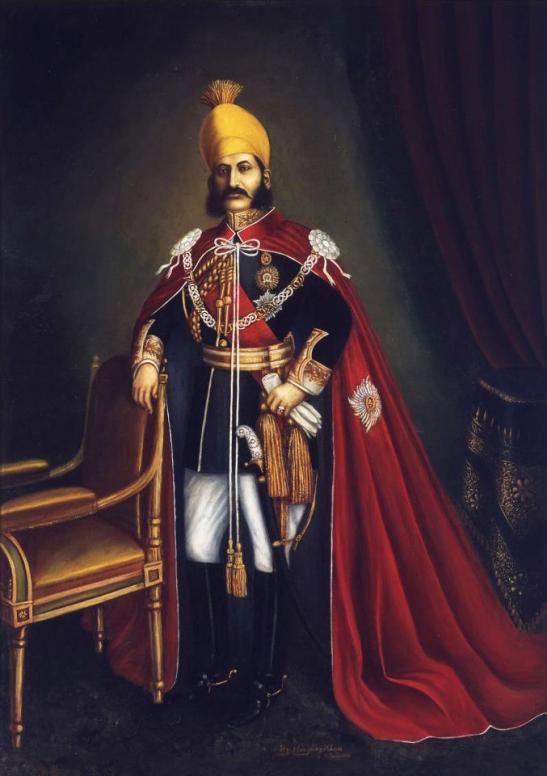Few remember the 6th Nizam on his death anniversary
By J.S. Ifthekhar
Hyderabad: The man who laid the foundation for modern Hyderabad had few persons to remember him on his 109th death anniversary. There was no programme to mark the occasion. A few heritage lovers, close family members and some casual visitors turned up to pay homage to the 6th Nizam, Mir Mahboob Ali Khan, on Thursday. They offered floral tributes to his grave situated in the Makkah Masjid.
Dr Chiranjeevi Kolluri, president of the Hyderabad Deccan Democratic Alliance, Capt L. Panduranga Reddy, president of the Voice of Telangana, M.A. Raheem, president of the Nawab Mir Mahboob Ali Khan Foundation, and Safiullah of Deccan Heritage Trust were present on the occasion.
Though he led a lavish lifestyle, the 6th Nizam undertook many administrative reforms that benefitted many people. Development of railways, revision of revenue settlements, setting up of cotton mills at Hyderabad, Aurangabad and Gulbarga are among his significant achievements. The first railway line from Secunderabad to Wadi was laid in 1870 by the Nizam's Guaranteed State Railway and later it was extended to Vijayawada.
"Mahboob Ali Khan was responsible for connecting the princely state of Hyderabad with the rest of British India", says P. Anuradha Reddy, chairperson, INTACH Hyderabad.
Apart from this, the sixth Nizam also gave top priority to the development of education, irrigation and medicine. Again, it was Mahboob Ali Khan who supported the setting up of the first Chloroform Commission in 1888 realising the importance of chloroform as an anaesthetic agent. The relief measures he took after the disastrous Musi floods of 1908 are significant and resulted in the planned construction and development of the Osman Sagar and Himayatsagar reservoirs.
Interestingly, Mahboob Ali Khan ascended the throne at the age of two when his father, Nawab Afzal-ud-Daula, died. Although there was a Council of Regency present to managed the administration till he came off age. The first Nizam to be coroneted by the representative of Her Majesty, the Queen, he was conferred the title of Grand Commander of the Star of India.
Poet, marksman, administrator and lover of gems and jewellery, the 6th Nizam had a refined taste. The famous Jacob diamond, which forms the crowning glory of the Nizam's jewels, was actually bought by him. He led an extravagant life and had a big fascination for cars and clothes. He died at the age of 46 at Falaknuma Palace following a paralytic attack.